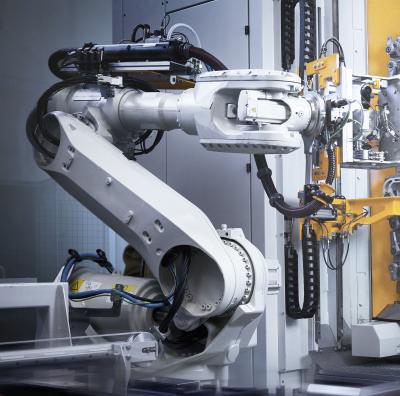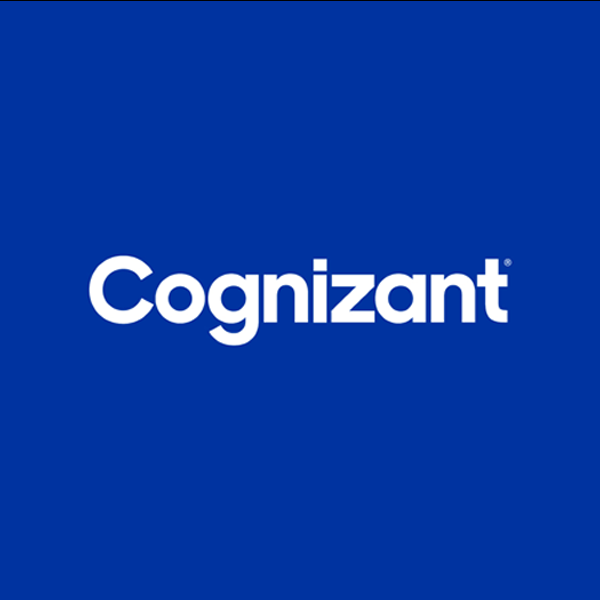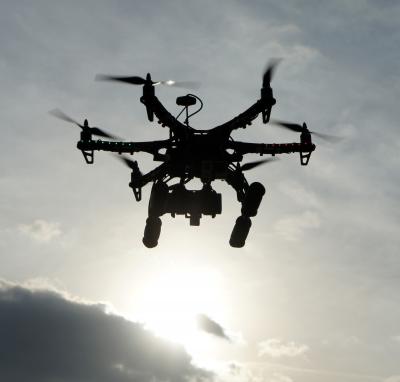| Su | Mo | Tu | We | Th | Fr | Sa |
|---|---|---|---|---|---|---|
| Su | Mo | Tu | We | Th | Fr | Sa |
|---|---|---|---|---|---|---|
-
 Mar 5, 2021Times of India
Mar 5, 2021Times of IndiaIT major Cognizant is rewarding top performers over and above the bonus amount. The company will shell out up to 125% of the target bonuses – a significant increase from the comparable performance-linked bonus paid at around 95% in the previous year.
-
 Mar 3, 2021ETHRWorld.com
Mar 3, 2021ETHRWorld.comThe report said the Asia Pacific and the Middle East companies are at least as bullish on AI and analytics as their global counterparts are, if not slightly more so.
-
 Mar 3, 2021ETCIO.com
Mar 3, 2021ETCIO.comIoT’s true potential lies in integrating IoT data with the company’s present processes and data streams to provide steady monitoring and improvement opportunities.
-
 Mar 1, 2021New Business Magazine
Mar 1, 2021New Business MagazineWith the rise of new machines, new generations of talent and new business models based on insight and intelligence, the rules of global competition had already started to change. Now, these tectonic shifts are being further catalyzed and accelerated by the global pandemic.
-
 Mar 1, 2021Finance Derivative
Mar 1, 2021Finance DerivativeThere has long been a paradox at the heart of the financial sector – customer loyalty remains high despite overall trust in the banking system being very low.
-
 Feb 26, 2021Hindustan Times
Feb 26, 2021Hindustan TimesThe government first-grade colleges in Karnataka will be provided with 12,500 debonded desktop computers as part of the Help Educate.
-
 Feb 26, 2021Retail Insight Network
Feb 26, 2021Retail Insight NetworkRetail Insight Network spoke with Cognizant head of products and resources Rohit Gupta to find out how the demise of these large retail empires will affect the rest of the retail industry and what lessons can be learned.
-
 Feb 25, 2021ESG Today
Feb 25, 2021ESG TodayProfessional services company Cognizant announced today a series of new corporate social responsibility initiatives, including a commitment of $250 million towards efforts to advance economic mobility, educational opportunity, diversity and inclusion, and health and well-being in communities around the world.
-
 Feb 25, 2021The Economic Times
Feb 25, 2021The Economic TimesBeginning in 2021, Cognizant said that it would expand grant-making in the US and India to new global markets where the company is growing its operations, including Australia, Canada, Germany, and the UK.
-
 Feb 24, 2021Mint
Feb 24, 2021MintAs a retention strategy, Cognizant has enhanced its leave policy by increasing the number of annual paid leaves and the company will provide an option for employees to work from home or office, or choose a combination of the two, subject to client approvals and security clearances.
-
 Feb 22, 2021IT Supply Chain
Feb 22, 2021IT Supply ChainBy continually assuring the currency, accuracy, and relevancy of business-critical data and analytics models, organisations can better anticipate and solve whatever market and environmental challenges they may encounter. However, perishable data and analytics models make it much harder to predict and respond to unexpected events.
-
 Feb 19, 2021City AM
Feb 19, 2021City AMNegative news about the new post-Brexit challenges for the UK’s financial services currently dominates headlines. The market structure is still far from settled ahead of upcoming talks between the UK and the EU on equivalence.
-
 Feb 18, 2021Financial Express
Feb 18, 2021Financial ExpressCognizant has stepped up its hiring efforts for both freshers and lateral hires in the country and expect the number of new recruits in the March quarter to be “more than ever,” Cognizant India Chairman and managing Director Rajesh Nambiar said.
-
 Feb 18, 2021The Economic Times
Feb 18, 2021The Economic TimesCognizant India hired more than 17,000 fresh graduates from campuses in 2020 and expects to hire over 23,000 fresh graduates in 2021—indicating a 35% increase year-on-year.
-
 Feb 15, 2021ASEAN Business
Feb 15, 2021ASEAN BusinessThe insurance industry is on the cusp of having its entire lifecycle reimagined as the shift to digital accelerates. From product development and underwriting, customer engagement and self-service, to claims and fraud detection, digital transformation is impacting every step in the insurance value chain.
-
 Feb 15, 2021The Economic Times
Feb 15, 2021The Economic TimesThe B2B2C, or business-to-business-to-consumer, model has seen a huge jump in demand after the COVID-19 outbreak disrupted operations of businesses globally.
-
 Feb 14, 2021The Economic Times
Feb 14, 2021The Economic Times“We anticipate a significant revenue acceleration in 2021 following our midteens bookings growth this year. Right now, we are 100% focused on recruiting talent,” says Cognizat’s Rajesh Nambiar.
-
 Feb 12, 2021Insider Engage
Feb 12, 2021Insider Engage“Looking to the longer term, we may see a shift in commercial insurance towards a greater appetite for self-insurance, with re-insurance type contracts, as businesses use IoT to manage their own risks better,” says Cognizant’s David Sexton.
-
 Feb 12, 2021Financial IT
Feb 12, 2021Financial ITAs 2021 unfolds, the topic of tax is set to dominate headlines. Tax to recoup the costs of Covid, tax on large, high profit companies, and new areas of tax to generate revenue and influence changes in society, such as environmental social and governance (ESG).
-
 Feb 11, 2021Commercial Drone Professional
Feb 11, 2021Commercial Drone ProfessionalIn the past couple of years, we have seen several announcements from technology companies around their involvement in the future of transport.
-
 Feb 11, 2021CNBC-TV18
Feb 11, 2021CNBC-TV18Here are the five key actions that will help businesses augment human work with digital technologies.
-
 Feb 11, 2021Singapore Business Review
Feb 11, 2021Singapore Business ReviewSingapore’s 2021 budget is due to be unveiled in less than a month, and all eyes are on the measures to be announced.
-
 Feb 10, 2021HFS Research
Feb 10, 2021HFS ResearchThe major healthcare industry innovations focus on reducing the cost of care (thereby improving the supply crunch) and shifting the mindset from illness to wellness (to manage rising demand). The pandemic shock has exacerbated these challenges.
-
 Feb 10, 2021IBS Intelligence
Feb 10, 2021IBS IntelligenceTrading activity and dividend arbitrage schemes are seeing increased scrutiny from authorities following the Cum-ex tax scandal. Sunniva Kolostyak speaks to Daniel Carpenter, Head of Regulation at Meritsoft, a Cognizant company, about what institutions can do to ensure compliance and in turn, build trust.
-
 Feb 10, 2021Axios
Feb 10, 2021AxiosAs both vaccinations and acquired immunity spread, life will likely settle into a new normal that will resemble pre-COVID-19 days — with some major twists.
-
 Feb 9, 2021Golf Channel
Feb 9, 2021Golf ChannelCognizant announced on Tuesday that it has partnered with both the PGA Tour and LPGA.
-
 Feb 9, 2021Forbes
Feb 9, 2021ForbesOn the heels of Cognizant being named Aston Martin’s title partner for the luxury British marque’s return to Grand Prix racing after a six-decade absence from the Formula 1 grid, the IT consulting giant continues to rev up their sports marketing initiatives.
-
 Feb 9, 2021Golfweek
Feb 9, 2021GolfweekCognizant’s commitment to keep the Founders Cup not only alive but thriving as Whan prepares to step down strikes a deeply personal chord for the commissioner.
-
 Feb 8, 2021Techonomy
Feb 8, 2021TechonomyIf you were about to get on a boat or an airplane, and someone told you there was a 70% chance your journey was going to turn out very, very badly, would you still embark? Probably not.
-
 Feb 5, 2021datanami
Feb 5, 2021datanamiHalf a million dollars are up for grabs in the latest XPRIZE competition, which pits dozens of data science teams
-
 Feb 4, 2021CIO Dive
Feb 4, 2021CIO DiveCompanies take 61 days on average to fill a tech role in high demand, compared to 42 days for a non-tech role, according to the iCIMS 2021 Workforce report, released Wednesday. The study consulted 500 U.S.-based HR professionals between November and December of 2020.
-
 Feb 4, 2021AI Business
Feb 4, 2021AI BusinessCOVID-19 turned our professional and personal lives upside down. It also forced governments, scientists, and health-care providers around the world to accelerate the development of artificial intelligence (AI).
-
 Feb 3, 2021NBC News
Feb 3, 2021NBC NewsThe elevation Tuesday of Andy Jassy to Amazon’s future CEO was the latest evidence that the forecast for Big Tech is increasingly cloudy. “It’s a bit of a crowning glory for the cloud,” said Cognizant’s Ben Pring.
-
 Feb 2, 2021Money FM 89.3
Feb 2, 2021Money FM 89.3A recent study by Cognizant’s ‘Centre for the Future of Work’ found that Singapore companies felt most impacted by COVID-19 throughout the region.
-
 Jan 25, 2021Financial Express
Jan 25, 2021Financial ExpressQuick and accelerated digital adoption by Indian firms has helped them grow faster than their Asian and Western peers.
-
 Jan 23, 2021Axios
Jan 23, 2021AxiosEven "jobs of the future" have been derailed by the intensified pandemic, but positions in environmental services are still growing strong.
-
 Jan 14, 2021ITProPortal
Jan 14, 2021ITProPortalArtificial intelligence (AI) played a crucial role in the survival of many organizations during the Covid-19 pandemic, and its influence is only going to grow with time. Recognising the opportunity, businesses in the UK are at the forefront of adoption, compared to elsewhere in Europe.
-
 Jan 13, 2021Business Leader
Jan 13, 2021Business LeaderThe UK is leading the way in Europe when it comes to the adoption of AI, with a fifth (18%) of companies based here already at the most advanced stage of AI maturity, the highest proportion in Europe, ahead of Germany (16%) and France (12%).
-
 Jan 13, 2021Times of India
Jan 13, 2021Times of IndiaWhile Asian businesses have been largely nimble in responding to the pandemic, India Inc braved the COVID-19 crisis much better than countries worldwide, and is also most bullish about embracing digital tools.
-
 Jan 13, 2021The Australian Business Review
Jan 13, 2021The Australian Business ReviewThe era of doing everything ‘at the touch of a button’ is coming to an end in 2020 smart speakers have changed how Australians work, play and relax.
-
 Jan 12, 2021Australian Financial Review
Jan 12, 2021Australian Financial ReviewMultibillion-dollar US information technology services provider Cognizant has bought private equity-backed local tech transformation consultancy Servian in a deal that will substantially increase the size of its cloud and data team.
-
 Jan 12, 2021Economic Times
Jan 12, 2021Economic TimesTechnology Solutions on Monday announced it is buying out Servian and Linium — taking the total number of such acquisitions to 11 over the past 12 months.
-
 Jan 12, 2021Mint
Jan 12, 2021MintThe top three forces that will have a strong impact on work in India by 2023 are hyper-connectivity (49%), concerns about security and privacy (46%), and process automation (44%).
-
 Jan 12, 2021The Economic Times
Jan 12, 2021The Economic TimesOnly 36% of companies in India experienced slightly negative to a very negative impact on their business performance in 2020, as opposed to the regional average of 44%, making Indian companies more resilient through the pandemic, a study by Cognizant revealed on Tuesday.
-
 Jan 10, 2021ET Now
Jan 10, 2021ET NowThe pandemic has highlighted starkly that companies that were further along the path towards digitalisation have fared better weathering the coronavirus storm. The acceptance of Big Data as an established business concept, coupled with the emergence of useful Internet of Things (IoT) technologies, has the potential to significantly change the way businesses operate.
-
 Jan 9, 2021The Wall Street Journal
Jan 9, 2021The Wall Street JournalA performance review is an opportunity to showcase your contributions to your employer. In most cases, these meetings are held annually, but some companies hold more frequent, informal check-ins, often quarterly.
-
Jan 8, 2021Forbes
This week marks a significant milestone in Aston Martin’s return to Formula One after a 60-year absence. Aston Martin officially brought on the New Jersey-based IT firm Cognizant as the Formula 1 team’s title partner.
-
 Jan 7, 2021The Point, NPR
Jan 7, 2021The Point, NPROn The Point, we continue our lecture series "Friends of the Marine Biological Laboratory’s Falmouth Forum." This month's topic is "The Future of Education, Skills, and Work: Staying Relevant in a World Changing Faster Than Ever." Our guest is Ben Pring, I-T futurist, and co-founder of Cognizant’s Center for the Future of Work.
-
 Jan 7, 2021Sports Business Journal
Jan 7, 2021Sports Business JournalThe newly rebranded Aston Martin F1 Team this morning will reveal its first title partner in American digital services company Cognizant in a deal that was set up in rapid fashion and is part of a larger B2B partnership.
-
Jan 7, 2021ESPN
The recently rebranded Aston Martin Formula One team has secured U.S.-based IT brand, Cognizant, as its title sponsor.
